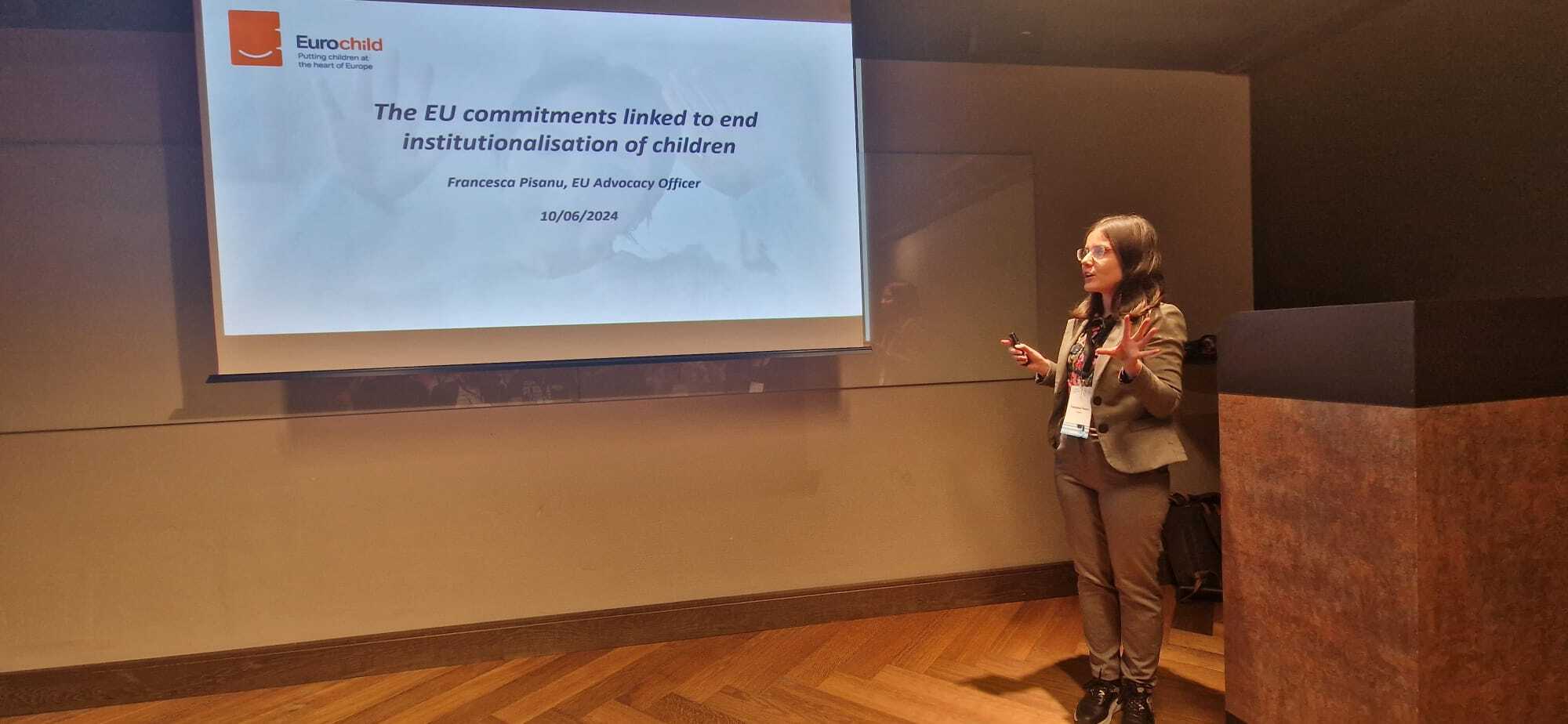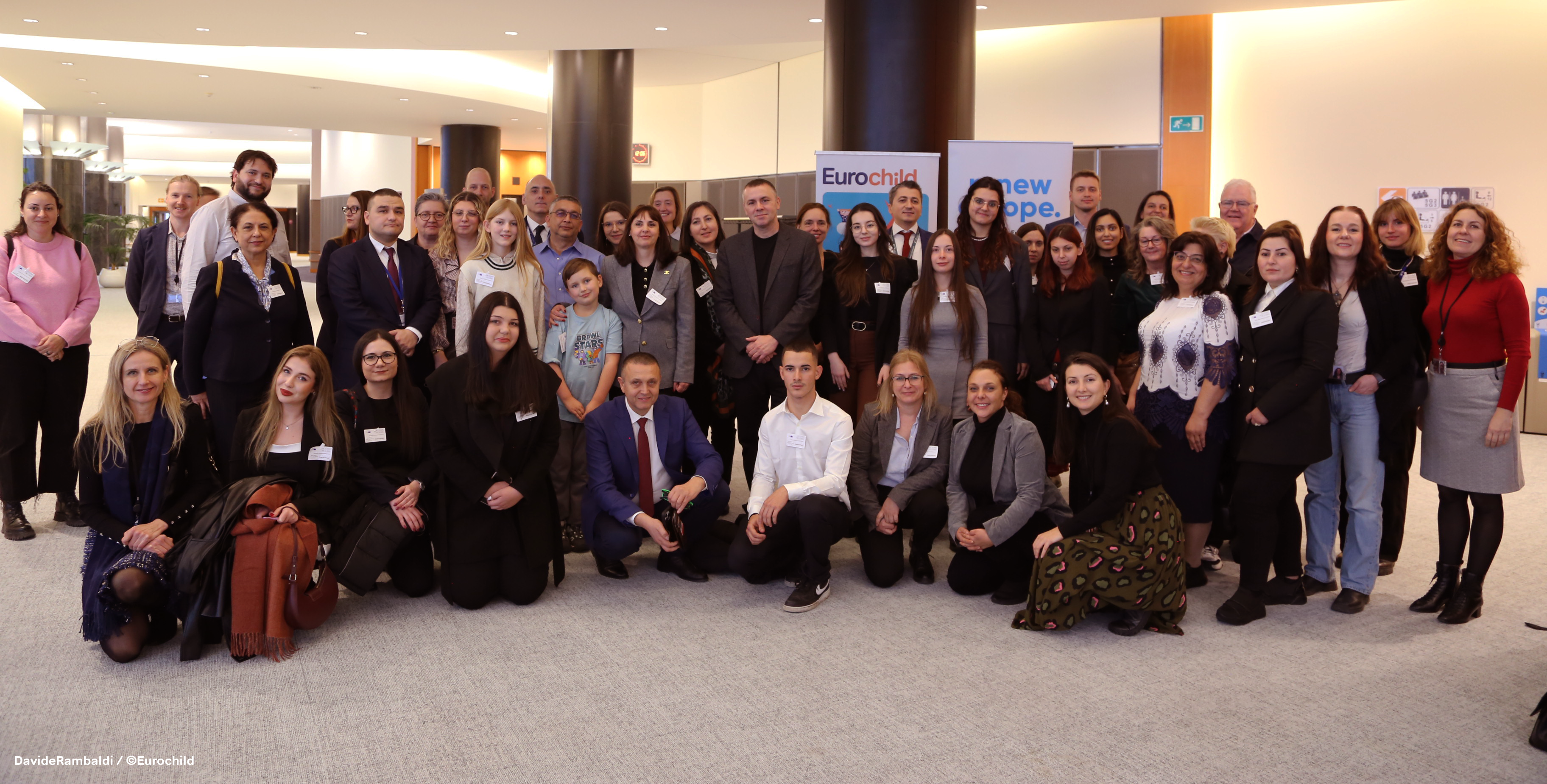Strengthening measures to protect children from trafficking
On 10 June, Eurochild participated in the conference Achieving Dynamic and Resilient Systems for Protection, Healing, and Justice for Child Victims of Trafficking, organised by the Council of the Baltic Sea States and CHILD CIRCLE.
This event convened key stakeholders from the United Nations, European Union, Council of Europe, the Organisation for Security and Co-operation in Europe (OSCE), and civil society organisations to discuss and improve protection mechanisms for children at risk of trafficking, especially those in vulnerable situations.
The plenary session
Grzegorz M. Poznański, Director General of the Council of the Baltic Sea States, stressed the need for improved early identification of child trafficking cases and support for professionals, highlighting the importance of a multidisciplinary approach.
Ylva Johannsen, 2019-2024 Commissioner for Home Affairs, presented the Revised Anti-Trafficking Directive, which strengthens the measures to tackle child trafficking and punishes those who use services provided by victims of trafficking. She emphasized the gender-specific vulnerabilities and risks and the importance of age-appropriate services, highlighting the current momentum represented by the revision of the Victims’ Rights Directive.
Benoît Van Keirsbilck, member of the UN Committee on the Rights of the Child, underscored the importance of building trusted relationships with child victims and training professionals to support child victims effectively. Van Keirsbilck argued that children must be part of the solution and not merely recipients of protection, especially during their recovery process, in line with the UN Convention on the Rights of the Child. He also informed the audience that the Committee on the Rights of the Child is seeking input on General Comment No. 27 regarding children's access to justice.
Siobhán Mullally, UN Special Rapporteur on trafficking in persons, highlighted the necessity of a child-focused, multidisciplinary response, particularly for children on the move. She discussed the online and technology-facilitated trafficking in human beings, as well as the impact of digital environments and the pandemic on trafficking, stressing preventive measures and effective remedies.
Kari Johnson from the OSCE noted the need for comprehensive policy actions for all children at risk, including those residing in institutional care. Petya Nestorova, Executive Secretary of GRETA at the Council of Europe, discussed GRETA's role in tackling child trafficking across Europe.
The workshop on the link between institutionalisation and trafficking
Francesca Pisanu, Eurochild, contributed to a workshop organized by Katharina Thon from OSCE Combating Trafficking in Human Beings on the link between institutionalisation and trafficking. She presented findings from the DataCare project on children in alternative care and discussed the EU policy and legislative framework related to the reform of child care and protection systems, including the EC Recommendation on integrated child protection systems.
Dr. Kate van Doore from Griffith Law School, child rights lawyer and author of the book Orphanage Trafficking in International Law, highlighted that some orphanages exploit children by falsely portraying them as orphans to attract international funding and volunteers, turning care into a profit-driven business model. Joel Borgström from the World Childhood Foundation highlighted the exploitation of children in institutions, and presented a report by the World Childhood Foundation and Barnrättsbyrån, revealing serious problems with sexual abuse against children in institutional care in Sweden.
The PROMISE Project
The conference was organised as part of the PROMISE project, focused on improving the justice process for child victims of trafficking by enhancing professional skills and fostering cooperation among authorities in the Baltic Sea Region. Rebecca O’Donnell, Child Circle, and Veikko Mäkelä, Council of the Baltic Sea States, presented the project. Key findings stressed the need for standardised definitions, improved identification processes, comprehensive cross-border procedures, transnational referral, and preventive measures.
Advocating for stronger child protection systems
The forms of trafficking are continuously evolving, and some categories of children, such as those deprived of parental care, are disproportionately at risk. As the largest network of organisations and individuals working with and for children, Eurochild advocates for strengthen child protection systems, leveraging opportunities such as this conference to support the most vulnerable children.




